Điểm nhấn
-
 Hội thảo “Thực trạng người Việt Nam hồi hương từ Vương quốc Anh giai đoạn 2014 - 2023”
Hội thảo “Thực trạng người Việt Nam hồi hương từ Vương quốc Anh giai đoạn 2014 - 2023”
-
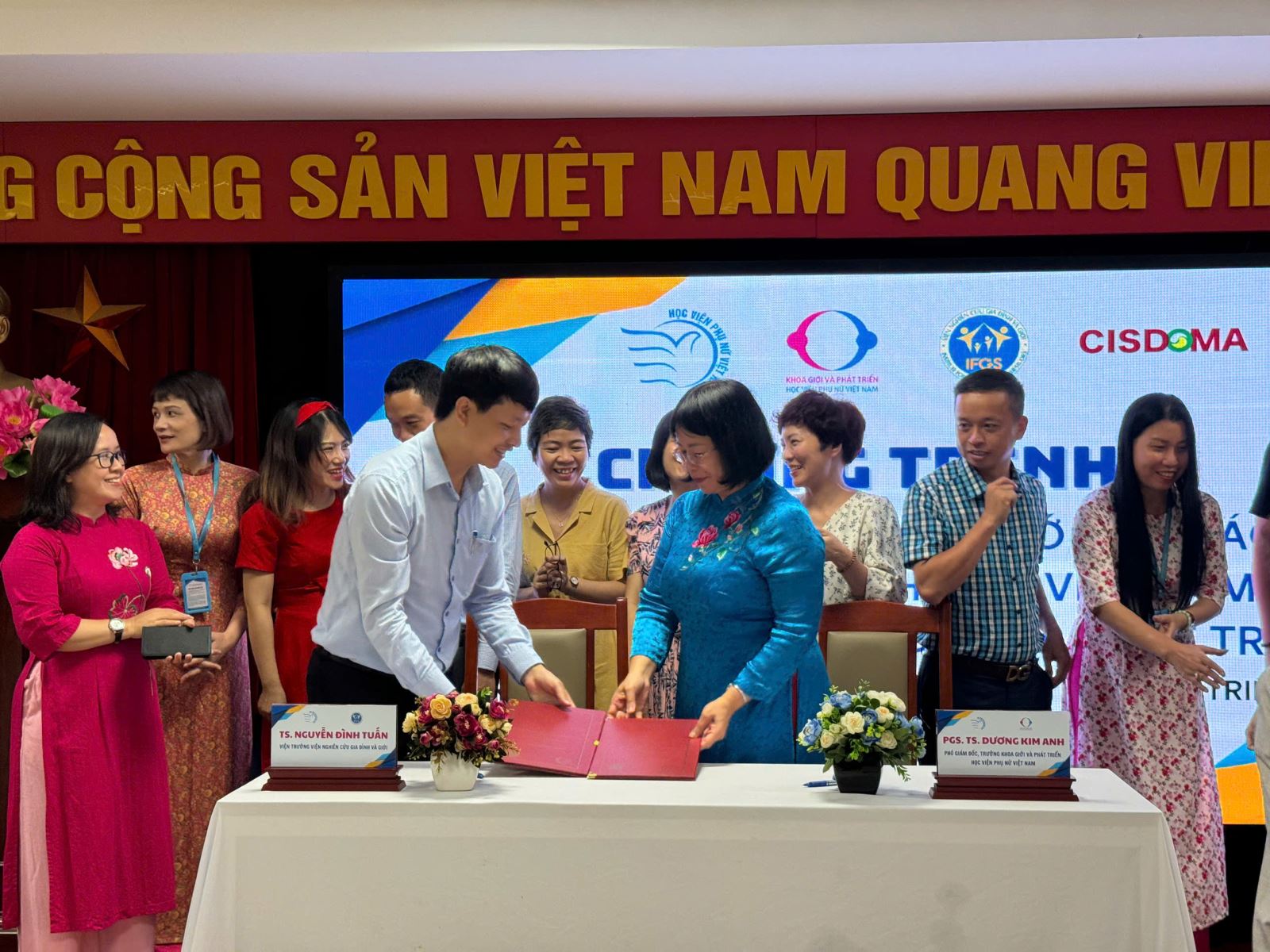 Lễ Ký kết biên bản ghi nhớ hợp tác giữa Học viện Phụ nữ Việt Nam với Viện Nghiên cứu Gia đình và Giới
Lễ Ký kết biên bản ghi nhớ hợp tác giữa Học viện Phụ nữ Việt Nam với Viện Nghiên cứu Gia đình và Giới
-
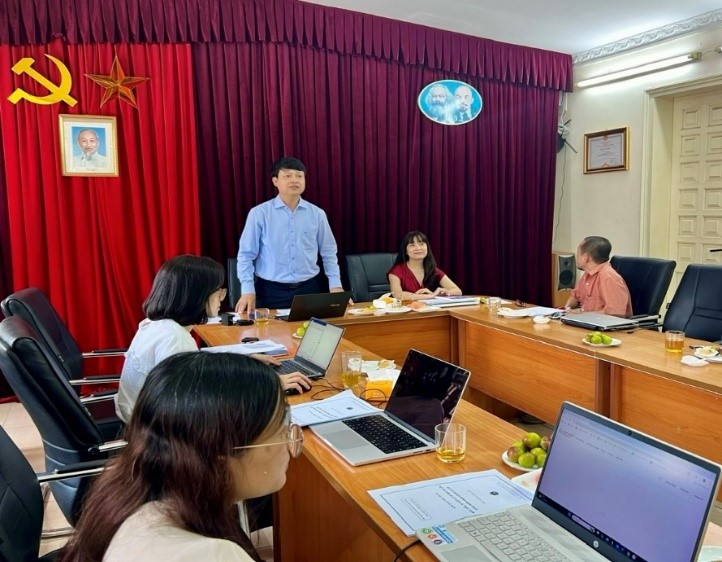 Hội thảo khoa học: "Bộ chỉ số gia đình hạnh phúc: Một số vấn đề lý luận và thực tiễn"
Hội thảo khoa học: "Bộ chỉ số gia đình hạnh phúc: Một số vấn đề lý luận và thực tiễn"
-
 Tọa đàm khoa học "Vận dụng lý thuyết trong nghiên cứu khoa học xã hội"
Tọa đàm khoa học "Vận dụng lý thuyết trong nghiên cứu khoa học xã hội"
-
 Hội nghị Đối thoại giữa Chi ủy, Lãnh đạo viện với đảng viên, viên chức và người lao động Viện nghiên cứu Gia đình và Giới 6 tháng đầu năm 2024
Hội nghị Đối thoại giữa Chi ủy, Lãnh đạo viện với đảng viên, viên chức và người lao động Viện nghiên cứu Gia đình và Giới 6 tháng đầu năm 2024
-
 Chi bộ Viện nghiên cứu Gia đình và Giới tổ chức sinh hoạt chuyên đề: Đoàn kết thống nhất trong Đảng theo tư tưởng Hồ Chí Minh
Chi bộ Viện nghiên cứu Gia đình và Giới tổ chức sinh hoạt chuyên đề: Đoàn kết thống nhất trong Đảng theo tư tưởng Hồ Chí Minh
-
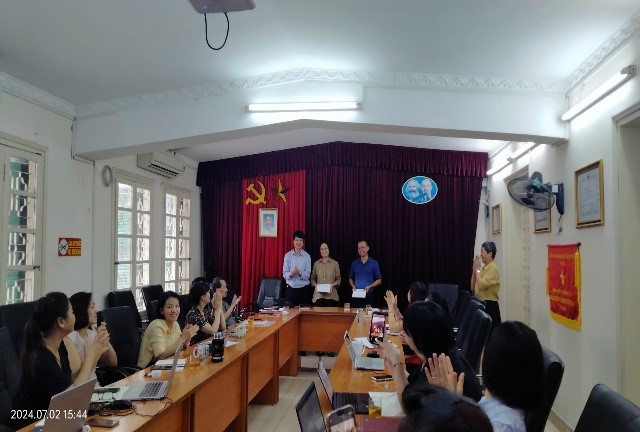 Cuộc thi “Nét đẹp và giá trị gia đình Việt Nam” hưởng ứng Ngày Gia đình Việt Nam 2024
Cuộc thi “Nét đẹp và giá trị gia đình Việt Nam” hưởng ứng Ngày Gia đình Việt Nam 2024
-
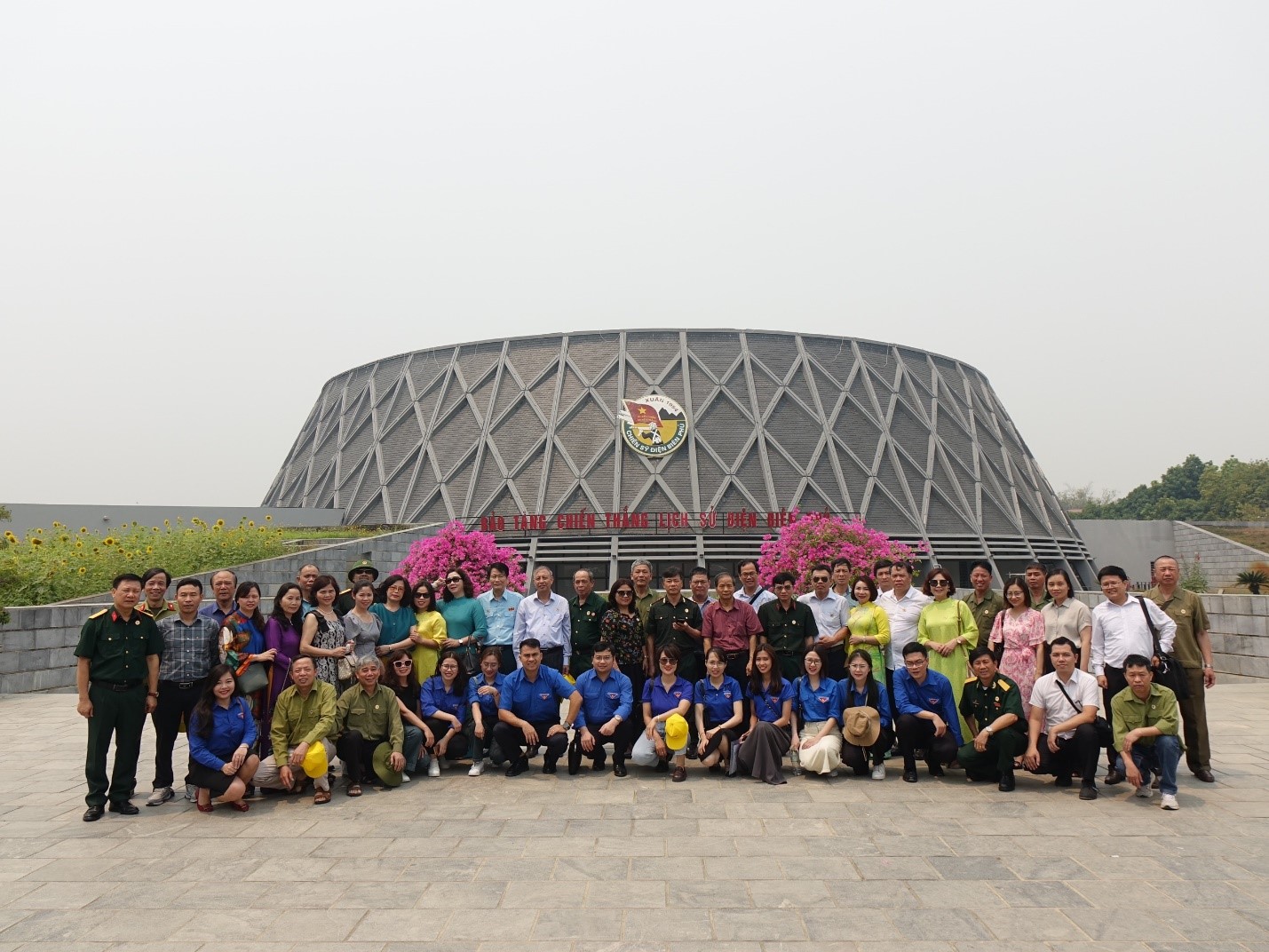 Hội Cựu chiến binh, Đoàn Thanh niên Viện Hàn lâm Khoa học xã hội Việt Nam đi thăm lại chiến trường xưa Điện Biên Phủ
Hội Cựu chiến binh, Đoàn Thanh niên Viện Hàn lâm Khoa học xã hội Việt Nam đi thăm lại chiến trường xưa Điện Biên Phủ
- Tổng mục lục Tạp chí 2023
-
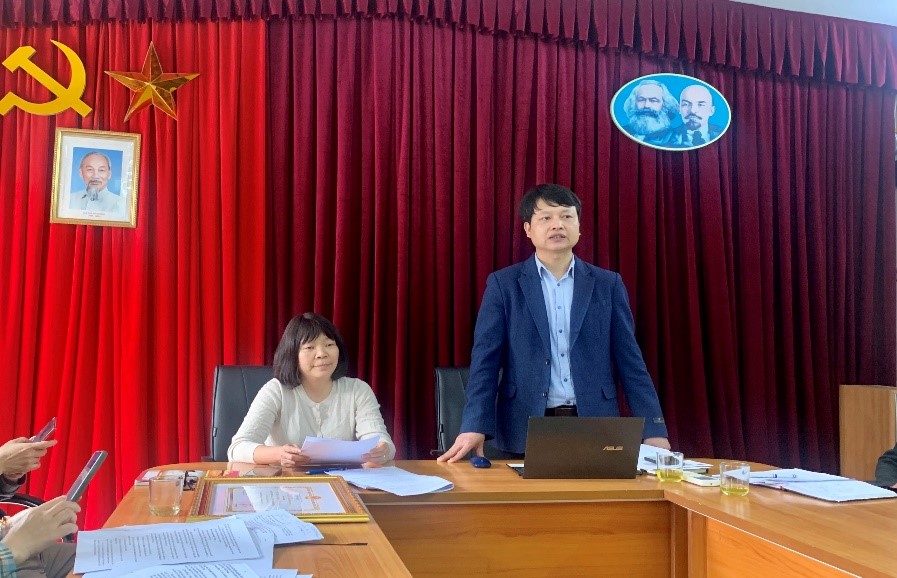 Viện nghiên cứu Gia đình và Giới phát động phong trào thi đua và ký Giao ước thi đua năm 2024
Viện nghiên cứu Gia đình và Giới phát động phong trào thi đua và ký Giao ước thi đua năm 2024
Liên kết web
Số lượt truy cập
97
5157625
Chi tiết tạp chíNo. 1 - 2021
On the occasion of the 20th anniversary of the Vietnamese Family Day (June 28, 2001 - June 28, 2021), and timely the Central Party Secretariat issues the Directive 06 CT/TW dated 24 June 2021 on the construction and development of Vietnamese family in the new period, The Vietnam Women's Union (VWU) Central Committee and the Institute of Family and Gender Studies, Vietnam Academy of Social Sciences coorganized the national scientific conference “Bringing the Resolution of the XIII Congress to life: Cultivating Vietnamese Family Values: Identification and Solutions”. The conference aims to create a forum for scientists and managers debate about family core values that Vietnam needs to pay attention to as well as provide the scientific and practical bases for boosting family movements in the coming time.
The 13th National Party Congress requires focusing on researching, defining and deploying the construction of the human values associated with preserving and developing the cultural values. Vietnamese family in the new period play a very important position, as cells of society, as the nucleus of saving and promoting national identity as well as transforming values to next generations. The resolution requires to build prosperous, happy, progressive and civilized Vietnamese families and develop family values.
The conference was established onsite in Hanoi and online via SureMeet platform with the participation of more than 350 delegates, including representatives of ministries, departments, sectors, international organizations, NGOs, research agencies, experts and scientists in the field of family and gender; Women's Union 63 provinces/cities.
The conference receives 52 full reports, addressing different aspects of family values: reports on concepts and theories of family values; reports on traditional family values; reports on modern family values, and reports on specific values of typical families.
At the opening of the workshop, Mme. Ha Thi Nga, member of Central Party Committee and President of Vietnam Women’s Union states: “Through the development period, although the structure and relationships in the Vietnamese family have changed, the basic function of the family still exists and the family remains an important and indispensable factor in the vitality of the nation and the development of the country. Building a Vietnamese family value system including economic, cultural and social values, combining tradition and modernity, becomes a powerful resource for realizing the goal of human development and national development. This is a requirement when implementing the Resolution of the 13th National Party Congress”. She also emphasizes: “Researching and pointing out core family values is consistent with the wishes and aspirations of women and the society. At the same time, it is necessary to identify practical solutions to cultivate Vietnamese family values in the new era, which is the responsibility of family members, women and the mission of the VWU. The development strategy of the Vietnam Women's Union to 2030, with a vision to 2035, sets an action plan to support women's comprehensive development and build a happy family”.
Speaking at the conference, Assoc. Prof. Bui Nhat Quang, member of Central Party Committee and President of Vietnam Academy of Social Sciences assesses that the conference fully demonstrates the guiding spirit of the XIII Congress on family, and concretizes tasks and activities that researchers, managers, and practitioners need to continue to build an emulation movement to cultivate the sustainability and vitality of Vietnamese families. It is important to strengthen the resilience of the family in risks and changes and to ensure that the family is truly a safe place for each individual to return both emotionally and physically. By establishing a prosperous and cultural family, it also contributes to the development of a sustainable and happy society.
In the keynote report presented at the conference, Assoc. Prof. Tran Thi Minh Thi, Director of the Institute of Family and Gender Studies, states Vietnam families are experiencing competing between traditional family values and modern family values, the sustainability of culture in modernization, the transition from modern to postmodern values, gender differences in family values and formulation of new family values via the institutionalization of the legal and policy. Assoc. Prof. Thi points out that “the biggest challenge facing Vietnamese families in the early years of the 21st century is still how to absorb new humanistic values in the trend of integration with the international community and at the same time while maintaining the national identity and promoting the fine traditional values of the Vietnamese family, creating conditions for the country's long-term stability and development”. The report recommends four crucial family values that need to pay special attention to in the coming period: ssecurity, prosperity, responsibility, and gender equality.
In agreement with this statement, Dr. Tran Tuyet Anh, Director of the Family Department (Ministry of Culture, Sports and Tourism) confirms that material factors can only be a guarantee to build a happy family; however, the decisive factor is the spiritual values, especially the quality of relationships between family members. Therefore, in terms of policy, the state needs to continue to improve living conditions for families in general. Parallel to that process is the investment, nurturing and maintenance of good value systems to "build a spiritual life" for this basic social institution.
The conference received comments and discussions from participants onsite and online on various issues such as economic values, moral values, psychological meaning of family, children values, marriage values, social opinions of new types of marriage and family, cultural family, solidarity and responsibility of the family, experiences of the Women’s Union in developing and protection of the family, and etc.
It is suggested in the conference that, the Vietnam Women’s Union and related agencies to form new family movement aiming to emphasize core family values such as security, responsibility, prosperity, gender equality and culture in the new period of development of the society.
The conference attracts great concerns of various newspapers and mass communications in Vietnam. There are more than twenty news on newspapers, radios, and televisions reporting of the conference contents and meanings.
Introduction of the Special Issue on Child Values in Child Educator Research
Abstract: The Value of Children and Social Transformation in Asia of Child Indicators Research is the official journal of the International Society for Child Indicators. Child Indicators Research has an H-index of 30, the impact factor (IF) in 2020 is 2.18 . This journal belongs to Social Sciences Citation Index (SSCI) of the web of Science Core Collection. This journal is cited by a total of 568 articles during the last 3 years . Therefore, the statistics, discussions and findings in the journal are expected to make a great impact in academia together with parents and policy makers to find the way to balance the anticipation and genuine care of a child. In February 2021, the journal has the special issue on “The Value of Children and Social Transformations in Asia” (Issue 2 Vol 14). The special issue consists of 18 scientific and original articles addressing various perspectives of child values in transforming Asia.
Coping Strategies to the Psychological Stress of Mothers Having Children with Disabilities
Abstract: The research focuses on uncovering the current situation of coping strategies with psychological stress of mothers having children with disabilities. The main methods used are surveys and semi -structured interviews. The research was conducted in 3 research sites in Lam Dong province of Vietnam: The School of Hearing Impairment, Hoa Lan Intellectual Retardation School and The Blind Association in Lam Dong province. Participants were mothers having children with disabilities (focusing only on mothers of children aged 0 to under 16 years old, belonging to 3 main groups of disabilities: visual impairment, hearing impairment and developmental delays). The total number of selected mothers was 150. Data processing was done by SPSS 20.0 software. Research results have shown that mothers used higher proactive coping strategies compared to passive, avoidant, and negative ones. There was a difference between the proactive coping strategy and factors such as the mother's education, family income level, type of disability, level of disability and the age of children with disabilities. The research also revealed that there were differences between passive coping strategies, avoidance and negativity with factors of psychological stress level, income of the mother's family, mother's age, and level of disability of the child.
Life Satisfaction at the Old Age in Urban Areas (Case Study in Ha Noi)
Abstract: Life satisfaction has been widely used to measure quality of life of older people for recent decades, however, this research issue has not received much attention in Viet Nam. Based on the activity theory, this paper investigates the life satisfaction of the older adults in Ha Noi in perspectives and practice as well as the influence of family on their life satisfaction. The paper analyzes the qualitative data of the study “Social engagement and life satisfaction of older adults (Case study in Ha Noi)” conducted by the Institute for Family and Gender Studies in Thanh Xuan district, Ha Noi in 2020. In the same vein with previous research studies, the study shows that the majority of the older people are quite satisfied with their current life. In perspectives, family, particularly, children’s love and care for the elderly is identified as one of the three most necessary conditions for the older people satisfying with their whole life. Nonetheless, in practices, not only receiving children’s love and care but also providing care for children and grandchildren bring about life satisfaction for the older adults. This result confirms the demand, even more, the necessity of continuing to work or involving in suitable tasks of people after the retirement.
Abstract: The aging characteristics of Vietnam's population structure are very similar to the three characteristics Japan experienced (i.e. speed, scale, seniority). We will realize community welfare where elderly people who have experienced a great tragedy in the war can end their lives with peace of mind while learning from the experiences of the elderly people in the war without entrusting their lives to their families and women. In other words, the integration of education on peace and welfare (i.e. social care) is important. It is necessary for Japan to relearn family values from Vietnam, and for Vietnam to learn how to do community-based welfare from Japan. It is the time for more international cooperation between Japan and Vietnam to creatively restructure new Asia-based welfare policies for the elderly (i.e. ideas, methodologies, methods and techniques) based on families and communities.
Hawkers and the Informal Economy of Ho Chi Minh City: The Multi-Scale of Risks from Migration
Abstract: Street vending is quite pervasive in developing countries, in Southeast Asian nations, especially in urban areas. Street vending activity is quite common in cities in Vietnam. According to the 2015 survey of the Vietnamese Government, migrants aged 15-59 in Vietnam accounted for 17.3% of the population (GSO-UNFPA, 2016). A large proportion of them work in the informal economic sector, working without contract, insurance, tax and little control. Street vending is typical of such informal activities. The informal economy is said to account for 20% of the country's GDP and tends to increase rapidly since 2017 (Tran Thi Bich Nhan and Do Thi Minh Huong, 2019). The requirement of city development creates the critical debate on stopping street vending or managing this activity in a way that is compatible with growth and development. Yet it seems that hawkers are unaware of the risks that they are facing, especially migrant group. They seem to fail to comprehend the opportunities associated to controlling their livelihood. The factors impacting vending activities have not been discussed strictly. This paper analyses the social life of hawkers to find who they are and their awareness on street vending as well as factors contributing to these activities. Furthermore, the research explores the risks and difficulties of the migrant hawkers. It analyzes the relation between livelihood of the poor and urban development. Based on that, the potential policies for this issue are discussed. Research is implemented based on both qualitative and quantitative methods. 204 questionnaires for hawkers have been administered and in depth interviews have been conducted from March to April, 2019. All the data were collected through the designed survey in 5 places in District 1, Ho Chi Minh City.
Abstract: Using data from a 2020 survey of 309 married people who have brothers or sisters in two communes/wards in Ninh Binh province, Viet Nam, this article analyzes the support siblings provide each other for building homes and making major house repairs and when they face great economic hardship. Applying social exchange theory and cultural approach to an analysis of the data, the article shows that, in the context of a market economy, siblings maintain a supportive relationship in these activities, although the level of support, compared with non-sibling support, varies depending on the type of activity. Sibling ties are strong or loose depending on their prior emotional and economic relationship. At the same time, sibling mutual support also differs, depending on the characteristics of the supporter. In general, men are more supportive than women; Catholics are more supportive than non-Catholics; and younger siblings receive more support. Living nearer and having a higher standard of living also facilitates providing more support. In addition, support depends on whether the support is in the form of knowledge and/or information, labor, or money.

